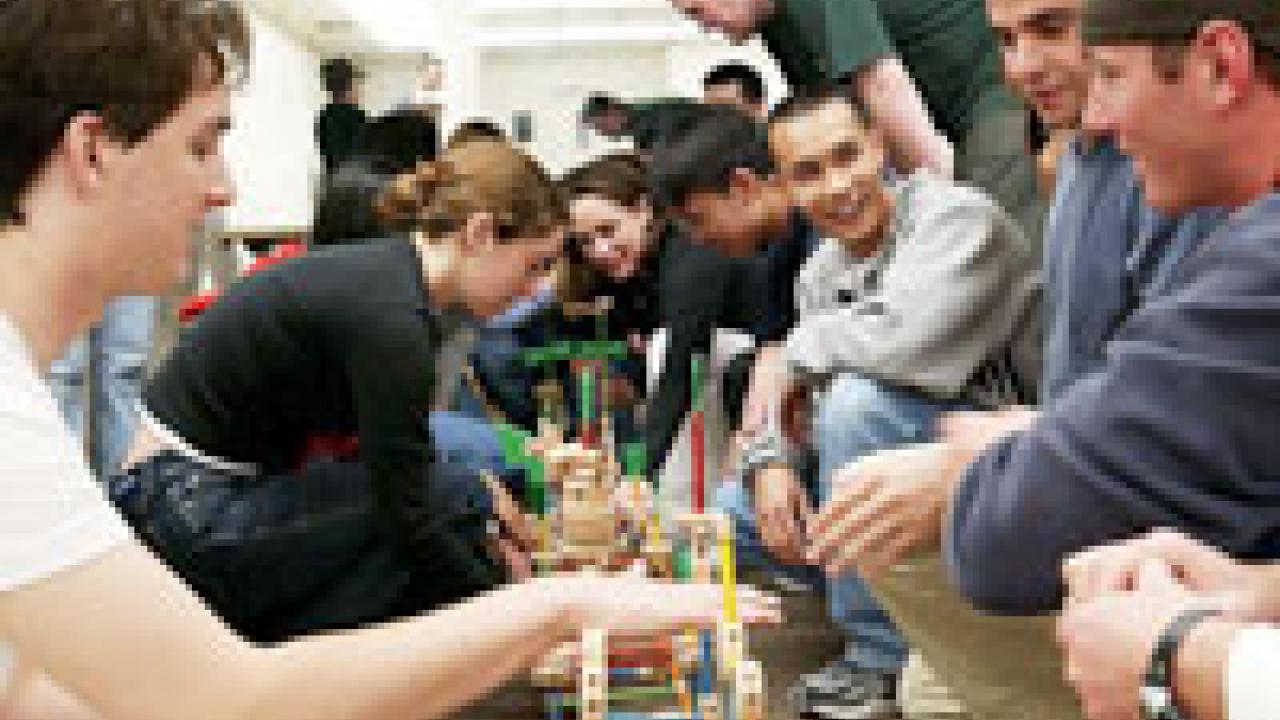In a speech prepared for delivery on the day he died, John F. Kennedy wrote, "Leadership and learning are indispensable to each other."
This wisdom captures the philosophy behind leadership programs at UC Davis. This year the campus added several offerings, including a minor in contemporary leadership that is unique within the UC system, an eight-week Summer Leadership Institute and a freshman leadership program based in a residence hall.
The undergraduate minor immediately drew 35 students, the institute will welcome at least 20 this year and the Bixby 2 theme floor was home to 50 freshmen who took a one-unit course on leadership and participated in workshops.
Rachel Burnitt, a double major in communication and psychology, lives on Bixby 2. Even though she had served in several leadership roles in her large high school near San Diego, she wondered what a floor of self-identified leaders would be like. "There were a lot of extroverts," Burnitt said, and friendships formed quickly. "It completely enhanced my freshman experience," she said.
Judd Brown, a community and regional development major who plans to become involved in student politics, also met compatible people on Bixby 2. "I found unique students who were not only dedicated but aware politically."
But are all leaders extroverted? Are all leaders political?
The team of administrators, faculty and staff who direct the leadership program say leadership can be found in a wide spectrum of people, from the extroverted "born" leader, to the quiet but wise mathematician who discovers his or her powers of leadership a little closer to graduation.
Lauren Roth, a peer adviser for the Leading Roles Program, said only about 35 percent of the upper division students who come to her for advising consider themselves leaders. "One purpose of our program is to bring out ordinary people, especially people who think they're not leaders, and train them to find their own voice," she said.
UC Davis' leadership programs use many means to accomplish that goal. Whether a student enrolls in the summer institute, minors in leadership or is among 500 students a year who sign up for the non-credit leadership development program, he or she will be asked to undertake at least one service project or internship.
Several students in last year's institute, for example, taught members of a local migrant community to operate a grant-funded computer lab. When adult users of the lab expressed concern about preparing their children for college, the students organized workshops to help them.
During the academic year, student projects ranged from serving on the board for Picnic Day to preparing a cancer information kiosk in Vietnamese for Sacramento residents.
These kinds of creative, practical experiences are exactly what UC Davis students seek, said program coordinator Lynn Fowler. "Students have told me that as future graduates of the University of California, they realize they'll be promoted quickly and move up through organizations. They know they'll need the skills to supervise, to work with people and to set a vision pretty early."
"Our classes are highly interactive because with leadership you have to get up and do it," said Fowler. Students role-play conflict situations, give presentations and receive feedback from classmates and outside observers. "You have to take a risk," she said, adding that the classes are taught on a passed/not passed basis to encourage students to take risks. "We also encourage them to connect with people different from themselves."
Even students who do not pursue the leadership minor are welcome to enroll in leadership classes or attend the summer institute, which gives priority to upperclassmen. Students may also apply to a leadership program within the Colleges at La Rue apartment complex; sophomores to seniors are eligible, and about 190 are in the program this year.
Marion Franck is a freelance writer whose work appears in campus publications and in Aggie Family Pack, an award-winning campus e-mail newsletter that is sent to parents of freshmen.
